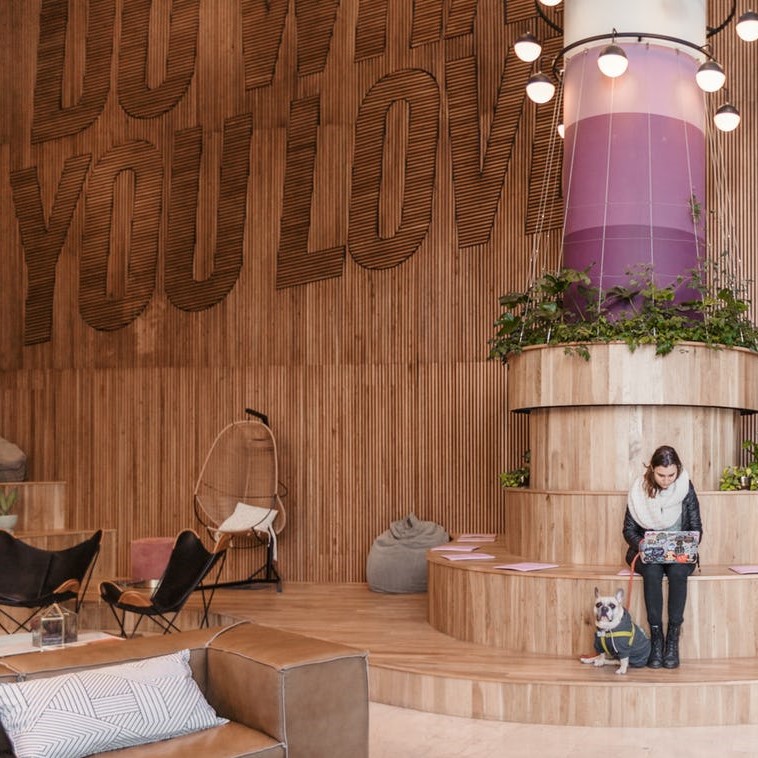To provide the best experiences, we use technologies like cookies to store and/or access device information. Consenting to these technologies will allow us to process data such as browsing behaviour or unique IDs on this site. Not consenting or withdrawing consent, may adversely affect certain features and functions.
The technical storage or access is strictly necessary for the legitimate purpose of enabling the use of a specific service explicitly requested by the subscriber or user, or for the sole purpose of carrying out the transmission of a communication over an electronic communications network.
The technical storage or access is necessary for the legitimate purpose of storing preferences that are not requested by the subscriber or user.
The technical storage or access that is used exclusively for statistical purposes.
The technical storage or access that is used exclusively for anonymous statistical purposes. Without a subpoena, voluntary compliance on the part of your Internet Service Provider, or additional records from a third party, information stored or retrieved for this purpose alone cannot usually be used to identify you.
The technical storage or access is required to create user profiles to send advertising, or to track the user on a website or across several websites for similar marketing purposes.
 As industrial action continues to affect travel and commuting for millions of people across the UK, office workers have been seeking alternative from which to work. In addition to relatively conventional adopted work spaces, such as coffee shops and cafes (24 percent), more than one in ten (11 percent) people could be logging on from their local pub according to the poll from Uswitch.com. (more…)
As industrial action continues to affect travel and commuting for millions of people across the UK, office workers have been seeking alternative from which to work. In addition to relatively conventional adopted work spaces, such as coffee shops and cafes (24 percent), more than one in ten (11 percent) people could be logging on from their local pub according to the poll from Uswitch.com. (more…)















 In the latest episode of the Workplace Geeks podcast, one of the world’s leading experts on work and workplace, Kate Lister, focuses on a recent study in collaboration with Owl Labs, ‘State of Remote Work 2022’. The report, in its 6th year, provides a platform for a much broader conversation about hybrid and remote working (spoiler alert: terms which Kate hates by the way), Kate’s invitation to speak during the pandemic to United States Congress about home-working, and GWA’s long standing and freely available ROI and savings calculators. James returns following his blacksmithing course in the Peak District to a new discussion format – no more Pinder Ponder, get ready for the reflection section.
In the latest episode of the Workplace Geeks podcast, one of the world’s leading experts on work and workplace, Kate Lister, focuses on a recent study in collaboration with Owl Labs, ‘State of Remote Work 2022’. The report, in its 6th year, provides a platform for a much broader conversation about hybrid and remote working (spoiler alert: terms which Kate hates by the way), Kate’s invitation to speak during the pandemic to United States Congress about home-working, and GWA’s long standing and freely available ROI and savings calculators. James returns following his blacksmithing course in the Peak District to a new discussion format – no more Pinder Ponder, get ready for the reflection section.
 One in four (23 percent) UK office workers plan to take advantage of remote working to log on from abroad in 2023, with a third (32 percent) doing so against company rules, according to new research by the risk management and insurance broker, Gallagher. The survey of more than 2,000 UK office workers claims that the dramatic increase in hybrid working post pandemic now extends to a “work from anywhere” culture. But employees choosing to locate themselves overseas brings risk implications for their employer, as well as themselves.
One in four (23 percent) UK office workers plan to take advantage of remote working to log on from abroad in 2023, with a third (32 percent) doing so against company rules, according to new research by the risk management and insurance broker, Gallagher. The survey of more than 2,000 UK office workers claims that the dramatic increase in hybrid working post pandemic now extends to a “work from anywhere” culture. But employees choosing to locate themselves overseas brings risk implications for their employer, as well as themselves. 
 Any business that is looking to grow its consumer base or expand into new markets is likely to be relying on digital technology to a greater extent than ever before both in their operations and management. This also means that the
Any business that is looking to grow its consumer base or expand into new markets is likely to be relying on digital technology to a greater extent than ever before both in their operations and management. This also means that the 


 All of humanity’s problems,” the French scientist and philosopher Blaise Pascal wrote in 1654, “stem from man’s inability to sit quietly in a room alone.” He may have been right, but then again, sitting in a room alone isn’t necessarily a great state of permanent being either. There was a time we used to talk with dismay about the Japanese phenomenon of intense social distancing known as hikikomori. We would consider with horror the isolation, lack of engagement with society, poor mental health and loneliness of the people who had almost completely withdrawn to their rooms. Those poor bastards locked up in enclosed spaces linked to the outside world only by screens.
All of humanity’s problems,” the French scientist and philosopher Blaise Pascal wrote in 1654, “stem from man’s inability to sit quietly in a room alone.” He may have been right, but then again, sitting in a room alone isn’t necessarily a great state of permanent being either. There was a time we used to talk with dismay about the Japanese phenomenon of intense social distancing known as hikikomori. We would consider with horror the isolation, lack of engagement with society, poor mental health and loneliness of the people who had almost completely withdrawn to their rooms. Those poor bastards locked up in enclosed spaces linked to the outside world only by screens. 










July 31, 2023
Digital nomads are starting to price out local communities around the world
by Dave Cook • Cities, Comment, Flexible working